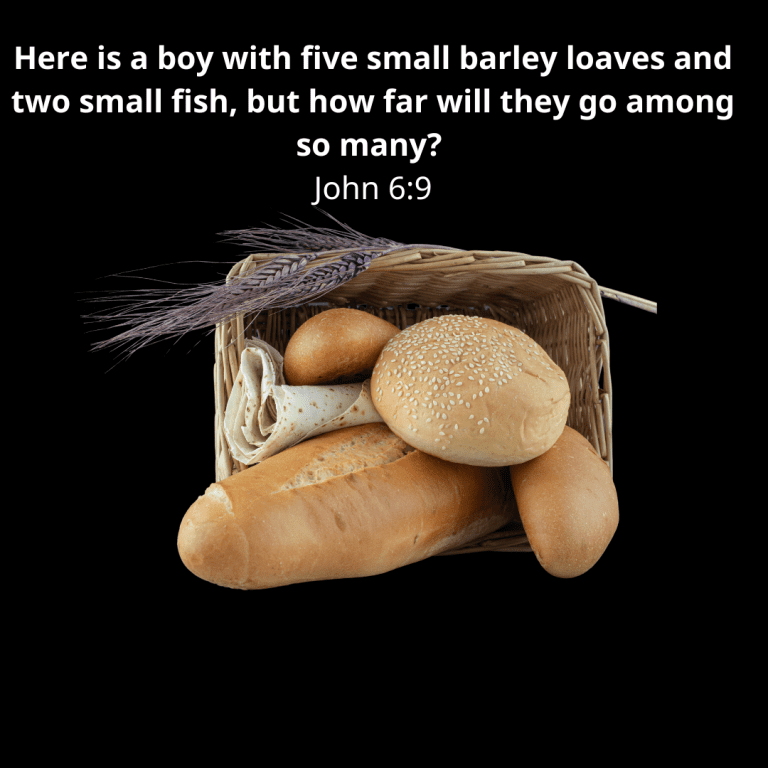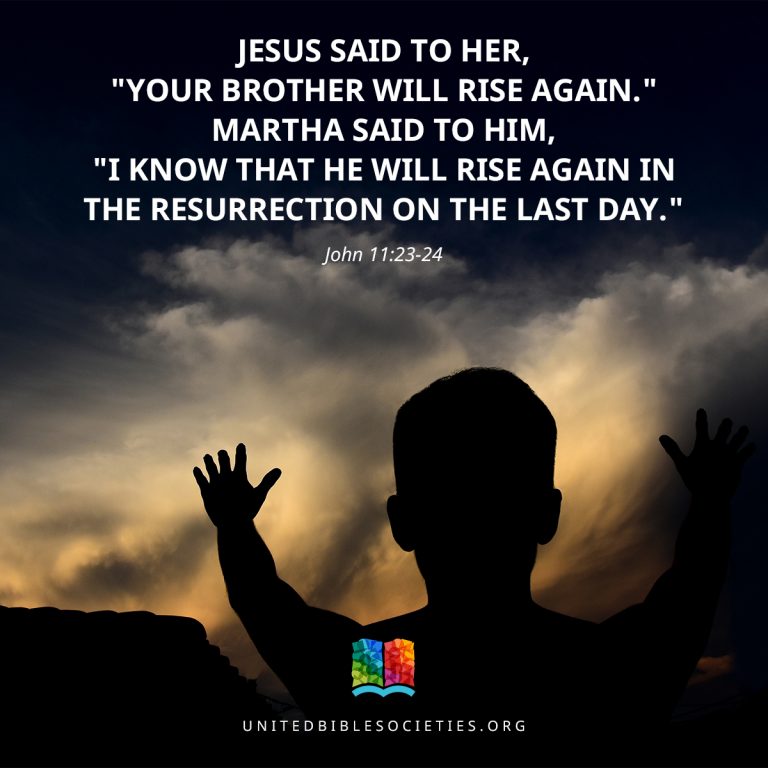Ŋen Yesu gaicwad̶ənu alo yi-Beṯania
(Maṯṯa 26:6-13Margus 14:3-9)1 Ŋen ëməd̶ia gəfo ṯwaiñ gəbërnia Alfissa, ñoman ñəṯënu d̶enəŋ ldəməñe lonto, Yesu nəgabəṯa alo yi-Beṯania alo isi Liasər gəfau, igi gënəŋu gətud̶ima eŋəɽaiñ. 2 Lënəŋulu ldid̶iṯi d̶əsa alo ŋen ŋanṯa ŋu, na Mard̶a ṯaŋəliṯu ŋəmëɽria, na Liasər ldəse Yesu ŋəla. 3 Nṯia Mariam nəŋəme ŋela ŋerṯo roṯəl ŋəbërnia narḏin iŋi ŋəmwad̶a gaiñəla, ŋerṯo ilia ywaiña kaiñ, nəŋəcwad̶e Yesu rəmanəña nəŋəɽrred̶e iriya yenenda na d̶əmwad̶a nḏəfeḏe egeɽa pred̶ d̶əŋela. 4 Orn Yaud̶a Iskariyuṯi, maje igi gəɽo ṯaləmis yi-Yesu (igi gid̶i aŋəmanaid̶e) gaṯa ṯa, 5 “Ŋen ŋanṯau ŋela iŋi ŋero ŋəbəlid̶ənia algərus yarno jənei miyya d̶iɽijin na aləgərus ainaneini led̶a ildi ləɽo ləbai?” 6 Gënəŋu galwaɽo ṯia gerṯe ŋen ŋanṯa gəbwa led̶ala ləɽo ləbai, orn ŋen ŋanṯa gënəŋu gaɽo oɽom, na gënəŋu garrəpa ërrua galgərus na gaiyaməd̶aṯa etam gəlëɽəŋu. 7 Orn Yesu nəŋaṯa, “Ŋgiṯəmar! Gënəŋu garəmoṯo ŋela ŋen ŋanṯa loman ləd̶ura d̶əlëɽəñi. 8 Ñagafo led̶ala ildi ləɽo ləbai ñəgaɽaŋalda ṯaica ṯaica, orn igënəñi ləgerr ləgafiar jaica jaica.”
Ŋen ŋəd̶əgeiya Liasər
9 Led̶a lwaiña ig-Alyawuḏ ləno ŋen ṯa Yesu gwëtu alo yi-Beṯama, ldela gerṯe ṯa aləseici Yesu gonto orn ṯa aləseici Liasər igi gënəŋu gətud̶ima eŋəɽaiñ. 10 Nṯia nələŋ nəkana ṯanəɽwatad̶o eŋen ṯa anəɽiñe Liasər com, 11 ŋen ŋanṯa eŋen ŋəlëɽəŋu led̶a lwaiña ig-Alyawuḏ ləfo ləṯad̶əlo ldëndi ŋen ŋə-Yesu.
Ŋen Yesu gënṯu alo yi-Ursalim ŋaɽrwaŋa
(Maṯṯa 21:1-11Margus 11:1-11Luka 19:28-40)12 Na eloman leṯeɽe led̶a lwama ildi leṯo nëməd̶ia ndə ləno ṯa Yesu gwëtu geṯo alo yi-Ursalim, 13 ldəme iɽəṯia ldəməñe ṯa alopəd̶aid̶e Yesu ŋəla, na lafo laɽwata pəlelo, ldaṯa,
“Rəmwa arnaneini ŋaɽrwa!
Gënəŋu gabuŋənṯu igi geṯo igirəŋ g-Eləŋ Rəmwa!
Fəŋu Eləŋ galo y-Israyil!”
14 Yesu nəŋəfid̶i ŋəɽiŋgia ŋəta nəŋəborṯe, ŋen ŋarno ŋəwërd̶ənu egad̶am gə-Rəmwa ṯa,
15 “Ŋerṯe agəd̶əñialo ya irnuŋ gə-Siyun!
Nwanəd̶o, eləŋ gəlaɽəŋa gid̶i aŋela, gaborṯo ŋəɽiŋgia ŋəta.”
16 Liga ildei ṯaləmis ilëɽəŋu yaijəba ŋen iŋei, orn ndə Yesu gətud̶inu nəŋəneini ŋaɽrwa d̶əge, lënəŋulu ldəlëldəŋəd̶eini eŋen iŋi ŋəwërd̶ənu iŋu, na ṯa led̶a liṯəma ŋen iŋi. 17 Led̶a ildi lafo Yesuŋəla ŋen gundəd̶u Liasər ed̶el gətud̶ima eŋəɽaiñ, lafo laɽwataid̶ia eŋen kaiñ iŋi ŋid̶ənu. 18 Na ŋen ŋafəṯia led̶a lwaiña ldəməñe ṯa alopəd̶iad̶əlda, ŋen ŋanṯa lënəŋulu lano ṯa gënəŋu gid̶u aŋwara. 19 Ŋen ŋafəṯia Alfarisiyin ṯaiɽwataid̶o eŋen niyaṯa, “Ñagaseicia ṯa ñagaber ñagəɽwad̶aṯa ñagëbəd̶ia wagənəŋ! Liji pred̶ lamaiyəteṯa alo!”
Ŋen ŋəd̶eɽəd̶ia d̶-Alyunaniyin
20 Na led̶a lafo ləmaṯan ig-Alyunaniyin iŋulu ildi leṯo nëməd̶ia ṯa aləbuŋṯi Rəmwa, 21 ldabəṯa Filibus nano (igi geṯo alo yi-Beṯsaiḏa alo yi-Jalil) ldəmekeɽəd̶e ldaṯa, “Ya eləŋ, ñagwonaṯa ñəgaseicia Yesu.” 22 Filibus nəŋəlwaɽəṯi Anḏərawus, na Filibus na Anḏərawus ldəɽe ndəm ldəlwaɽəṯi Yesu. 23 Yesu nəŋəluɽəbiṯi eŋen ṯa, “Liga leṯo d̶əge ildi Id̶ia gə-Led̶a gəneinia ŋaɽrwa ŋoɽra. 24 Đeṯəm, d̶eṯəm, igandəlwaɽəṯia ṯa, ndə lwana lero ləbəɽiṯialo id̶ud̶a na lero ləbaiya, lid̶i aləfeṯe alsoŋ. Orn ndə laiyo lid̶i aləŋe ləd̶ia lwaiña. 25 Ed̶a igi gərəmoṯwa d̶əməṯia d̶əlëɽəŋu gënəŋu gid̶i aŋəṯwe, orn ed̶a igi gəned̶o d̶əməṯia d̶əlëɽəŋu egalo isi, gënəŋu gid̶i aŋərəmoṯe ŋen ŋanṯa d̶əməṯia d̶əbəɽəbəte. 26 Ndə ed̶a gənəŋ gwonaṯa gəñiṯia ŋəmëɽria, ŋgiṯəmar aŋaiñəteṯe na alo isi egəfau, gënəŋu gid̶i aŋaufeṯe com. Na ed̶a gənəŋ igi gəñiṯia ŋəmëɽria, Bapa gid̶i aŋəmanaice d̶amia.
Ŋen Yesu gəɽwato eŋen ŋəŋəɽaiñ ŋəlëɽəŋu
27 “Đəñid̶i usila gəlëɽəñi gagərd̶o kaiñ. Egalwaɽa ṯau? ‘Bapa, ëbəriñi iliga ildi’? Orn egeṯo ŋen ŋanṯa liga ildi. 28 Bapa naico irəŋ gəlaɽəŋa ŋaɽrwa!” Oro olia nəŋela elo nəŋaṯa, “Eganaico ŋaɽrwa d̶əge, na igid̶i enaice ŋaɽrwa təŋ.” 29 Ndə led̶a lwaiña ildi ləmaṯurwa nano ləno olia, ldaṯa, rəmwa rëbwuɽəniano, orn led̶a lwomən təŋ ldaṯa, “Malaiyəka yamaɽwatiṯia!”
30 Yesu nəŋəluɽəbiṯi eŋen ṯa, “Olia igi geṯo gerṯe ŋen ŋanṯa ñi, orn ŋen ŋanṯa ñaŋ. 31 Alo isi yakəmənia d̶əñid̶i, eləŋ galo isi gawujənia ndëuwər, 32 ndə igënəñi igapənu alo niyabeini elo, igid̶i ibəlid̶ini led̶a pred̶ ñi nano.” ( 33 Gënəŋu galwaɽo ṯia ṯa aŋələŋaici ŋen gid̶i aŋaiye ṯau.)
34 Led̶a ildi lərraid̶o ldəmuɽəbiṯi eŋen ṯa, “Ñagano eŋen ŋ-Alganun ṯa, Almasiya gafia bəɽəbəte, na fəṯau agabaṯa ṯa, Id̶ia gə-Led̶ad̶eṯəm gabeinia elo? Ǝsëgi gəɽo Id̶ia gə-Led̶a?” 35 Yesu nəŋəleiṯi ṯa, “Arrerre gid̶i ñafeṯəlda iliga lobəlano. Erldr ŋen ŋanṯa ñagerṯo arrerre ṯa ŋərəm aŋerṯe ŋəndeṯa nano. Ed̶a igi gəbərlda iŋərəm gaijəba ṯa gabəṯa ŋga. 36 Aŋënṯr ŋen ŋarrerre ŋen ŋarno ñagerṯo ṯa ñaɽeṯe ləd̶ia larrerre.” Ndə Yesu gəlwaɽo ṯia nəŋəloməñe nəŋələbəjeini.
Ŋen ŋəled̶a lero ləbëndia ŋen alo Yuḏiya
37 Gënəŋu gafo gid̶u aŋwara ywaiña ŋulu nëiñua orn lderṯe ləbëndia ŋen ŋəlëɽəŋu, 38 ṯa ŋen ŋənabi Isaiya aŋəɽiñəd̶eini iŋi gəlwaɽo ṯa,
“Ya Eləŋ, əsëgi gëndu ŋen eŋaiñ?
Na əsëgi gəneinu d̶əŋ d̶wonḏəṯo kaiñ d̶-Eləŋ Rəmwa?”
39 Ŋen ŋafəṯia lënəŋulu lero ləɽwad̶aṯa ləbëndia ŋen, ŋen ŋanṯa Isaiya galwaɽo təŋ ṯa,
40 “Rəmwa rid̶u isi esen irəmiṯu
na ndrid̶i ŋəṯəɽa eŋen ŋəɽo təgətəg
ndrid̶i nare enen nəbɽwaŋəno
ṯa alerṯe ləɽwad̶aṯa ləseid̶ia isiya
na alerṯe lələŋeṯa enare enen ṯa aləñoɽəbaṯe nano ṯa ileid̶i.”
41 Isaiya galwaɽo ṯia ndə gəseicu ŋaɽrwa ŋəlëɽəŋu, nəŋəlwaɽe eŋen ŋəlëɽəŋu. 42 Orn d̶eṯəm led̶a lwaiña enələŋ ldëndi ŋen ŋəlëɽəŋu orn lero ləɽwata pəlelo ŋen ŋanṯa lad̶əñia Alfarisiyin, ṯa lid̶i alətərinṯi emajma. 43 Ŋen ŋanṯa lwonaṯa ṯa led̶a aldənanaice d̶amia d̶əməñaṯo d̶amia d̶ə-Rəmwa.
Ŋen iŋi Yesu gërrəŋaicu led̶a
44 Yesu galwaɽo pəlelo nəŋaṯa ṯa, “Ed̶a gëndu ŋen ŋəlëɽəñi gerṯe fəṯa gëndu ŋen ŋəlëɽəñi təldaŋ orn com gëndu ŋen ŋəlëɽəŋu igi gəd̶waṯəñe, 45 na ed̶a gaiñondaṯa gamwondaṯa com igi gəd̶waṯəñe. 46 Egeṯo alo egəɽo arrerre ṯa ed̶a igi gëndu ŋen ŋəlëɽəñi aŋerṯe gəfia iŋərəm. 47 Ndə ed̶a gənna ŋen ŋəlëɽəñi na gəber gəbëndia gerṯe fiñi egəmakəmia, ŋen ŋanṯa egero egeṯo ṯa yakəme alo orn ṯa yëbəri alo. 48 Ed̶a gəned̶əñe na gəber gəbëndia ŋen ŋəlëɽəñi, gënəŋu gerṯo ŋen iŋi ŋəmakəmia. Fəŋu olia egəɽwato, gid̶i aŋəmakəme eloman ildi lənḏurṯu alo. 49 Ŋen iŋi ŋad̶eṯəm ŋen ŋanṯa egero egəɽwata bəɽan, orn Đaṯa igi gəd̶waṯəñe gënəŋu galwaɽəṯiñi ŋen ṯa eɽwate ṯia. 50 Na egaləŋeṯo ṯa ŋen ŋəlëɽəŋu ŋaɽo d̶əməṯia d̶əbəɽəbəte. Ŋen ŋafəṯia ŋen egəɽwatau, egaɽwata ŋen ŋarno Đaṯa gəlwaɽəṯiñi.”
Jesus Is Anointed at Bethany
(Matthew 26.6-13Mark 14.3-9)1 Six days before the Passover, Jesus went to Bethany, the home of Lazarus, the man he had raised from death. 2 They prepared a dinner for him there, which Martha helped serve; Lazarus was one of those who were sitting at the table with Jesus. 3 Then Mary took a whole pint of a very expensive perfume made of pure nard, poured it on Jesus' feet, and wiped them with her hair. The sweet smell of the perfume filled the whole house. 4 One of Jesus' disciples, Judas Iscariot—the one who was going to betray him—said, 5 “Why wasn't this perfume sold for three hundred silver coins and the money given to the poor?” 6 He said this, not because he cared about the poor, but because he was a thief. He carried the money bag and would help himself from it.
7 But Jesus said, “Leave her alone! Let her keep what she has for the day of my burial. 8 You will always have poor people with you, but you will not always have me.”
The Plot against Lazarus
9 A large number of people heard that Jesus was in Bethany, so they went there, not only because of Jesus but also to see Lazarus, whom Jesus had raised from death. 10 So the chief priests made plans to kill Lazarus too, 11 because on his account many Jews were rejecting them and believing in Jesus.
The Triumphant Entry into Jerusalem
(Matthew 21.1-11Mark 11.1-11Luke 19.28-40)12 The next day the large crowd that had come to the Passover Festival heard that Jesus was coming to Jerusalem. 13 So they took branches of palm trees and went out to meet him, shouting, “Praise God! God bless him who comes in the name of the Lord! God bless the King of Israel!”
14 Jesus found a donkey and rode on it, just as the scripture says,
15 “Do not be afraid, city of Zion!
Here comes your king,
riding on a young donkey.”
16 His disciples did not understand this at the time; but when Jesus had been raised to glory, they remembered that the scripture said this about him and that they had done this for him.
17 The people who had been with Jesus when he called Lazarus out of the grave and raised him from death had reported what had happened. 18 That was why the crowd met him—because they heard that he had performed this miracle. 19 The Pharisees then said to one another, “You see, we are not succeeding at all! Look, the whole world is following him!”
Some Greeks Seek Jesus
20 Some Greeks were among those who had gone to Jerusalem to worship during the festival. 21 They went to Philip (he was from Bethsaida in Galilee) and said, “Sir, we want to see Jesus.”
22 Philip went and told Andrew, and the two of them went and told Jesus. 23 Jesus answered them, “The hour has now come for the Son of Man to receive great glory. 24 I am telling you the truth: a grain of wheat remains no more than a single grain unless it is dropped into the ground and dies. If it does die, then it produces many grains. 25 Those who love their own life will lose it; those who hate their own life in this world will keep it for life eternal. 26 Whoever wants to serve me must follow me, so that my servant will be with me where I am. And my Father will honor anyone who serves me.
Jesus Speaks about His Death
27 “Now my heart is troubled—and what shall I say? Shall I say, ‘Father, do not let this hour come upon me’? But that is why I came—so that I might go through this hour of suffering. 28 Father, bring glory to your name!”
Then a voice spoke from heaven, “I have brought glory to it, and I will do so again.”
29 The crowd standing there heard the voice, and some of them said it was thunder, while others said, “An angel spoke to him!”
30 But Jesus said to them, “It was not for my sake that this voice spoke, but for yours. 31 Now is the time for this world to be judged; now the ruler of this world will be overthrown. 32 When I am lifted up from the earth, I will draw everyone to me.” ( 33 In saying this he indicated the kind of death he was going to suffer.)
34 The crowd answered, “Our Law tells us that the Messiah will live forever. How, then, can you say that the Son of Man must be lifted up? Who is this Son of Man?”
35 Jesus answered, “The light will be among you a little longer. Continue on your way while you have the light, so that the darkness will not come upon you; for the one who walks in the dark does not know where he is going. 36 Believe in the light, then, while you have it, so that you will be the people of the light.”
The Unbelief of the People
After Jesus said this, he went off and hid himself from them. 37 Even though he had performed all these miracles in their presence, they did not believe in him, 38 so that what the prophet Isaiah had said might come true:
“Lord, who believed the message we told?
To whom did the Lord reveal his power?”
39 And so they were not able to believe, because Isaiah also said,
40 “God has blinded their eyes
and closed their minds,
so that their eyes would not see,
and their minds would not understand,
and they would not turn to me, says God,
for me to heal them.”
41 Isaiah said this because he saw Jesus' glory and spoke about him.
42 Even then, many Jewish authorities believed in Jesus; but because of the Pharisees they did not talk about it openly, so as not to be expelled from the synagogue. 43 They loved human approval rather than the approval of God.
Judgment by Jesus' Words
44 Jesus said in a loud voice, “Whoever believes in me believes not only in me but also in him who sent me. 45 Whoever sees me sees also him who sent me. 46 I have come into the world as light, so that everyone who believes in me should not remain in the darkness. 47 If people hear my message and do not obey it, I will not judge them. I came, not to judge the world, but to save it. 48 Those who reject me and do not accept my message have one who will judge them. The words I have spoken will be their judge on the last day! 49 This is true, because I have not spoken on my own authority, but the Father who sent me has commanded me what I must say and speak. 50 And I know that his command brings eternal life. What I say, then, is what the Father has told me to say.”




